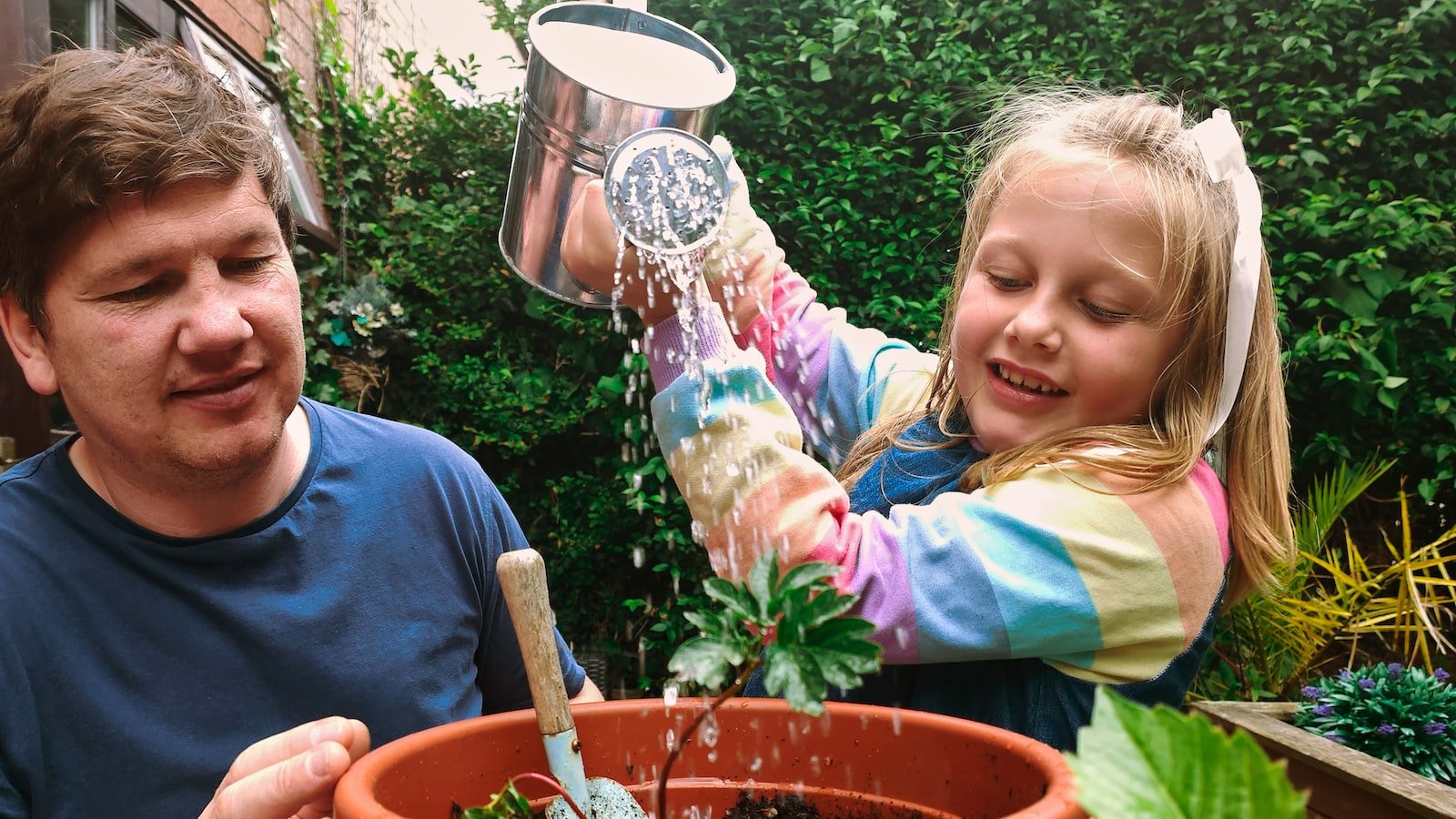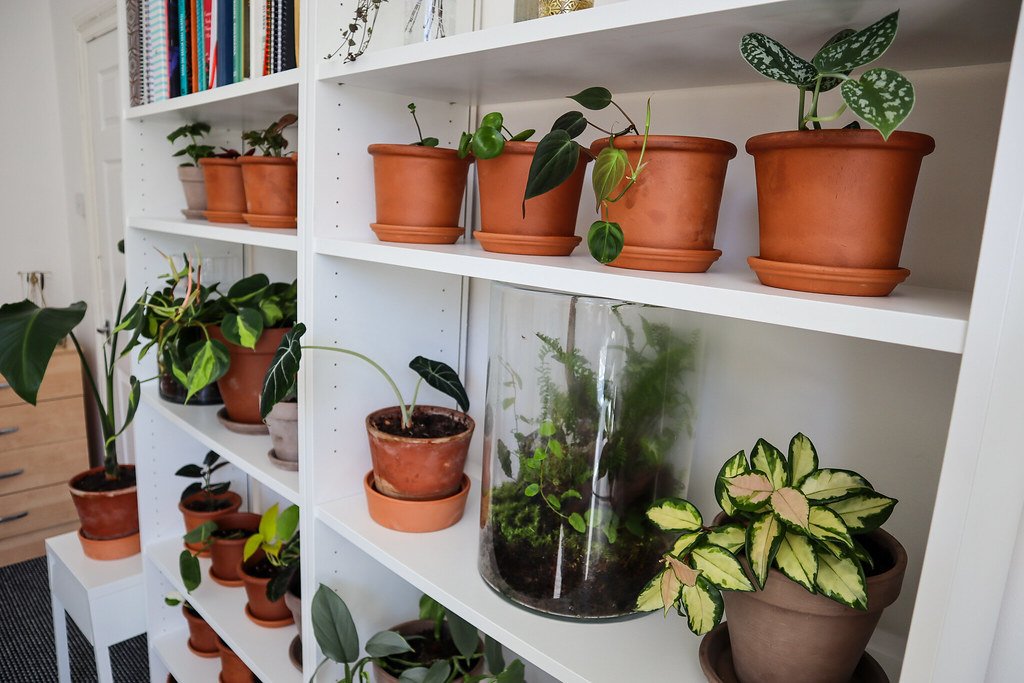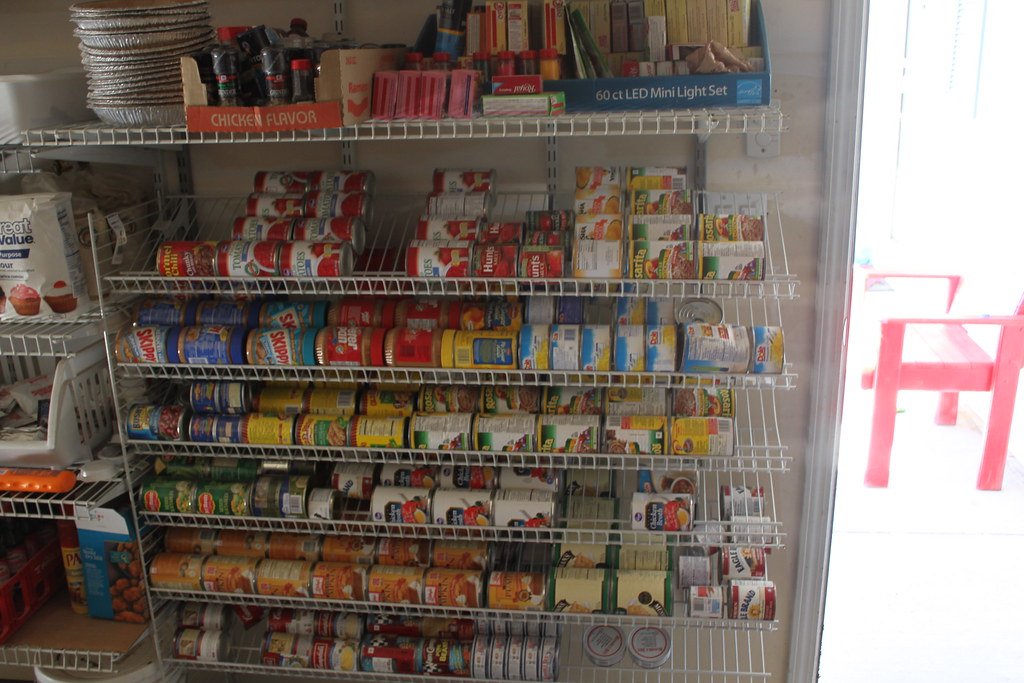Now Reading: DIY Urban Gardening: Grow Food in Small Spaces
-
01
DIY Urban Gardening: Grow Food in Small Spaces

DIY Urban Gardening: Grow Food in Small Spaces
Growing your own food may seem like a daunting task, especially if you live in an urban jungle surrounded by concrete and limited space. However, with a dash of creativity and a sprinkle of determination, you can transform even the smallest nooks and crannies into lush green havens that yield an abundance of fresh produce. DIY urban gardening is the solution that allows you to nurture your green thumb, regardless of the size of your living space. So, roll up your sleeves, grab your gardening gloves, and get ready to embark on a journey that will not only reconnect you with nature but also bring the joy of home-grown goodness right to your plate.
Table of Contents
- Transforming Tiny Spaces into Green Oasis
- Utilize Every Inch: Vertical Gardening for Small Areas
- Indoor Gardening: Cultivating Fresh Produce in Limited Space
- Smart Container Choices: Optimal Planting Solutions for Urban Gardens
- Urban Composting: Nurturing Soil Health in Tiny Gardens
- Q&A
- The Way Forward

Transforming Tiny Spaces into Green Oasis
Creating a lush and vibrant oasis in a tiny space is not only possible but also incredibly rewarding. With a touch of creativity and a green thumb, you can transform even the tiniest nook into a serene sanctuary that brings nature right to your doorstep.
Imagine stepping out onto a tiny balcony and being greeted by a stunning vertical garden adorned with cascading vines, colorful flowers, and fragrant herbs. Hang beautiful planters from the walls, maximizing your vertical space and creating a visual feast for the eyes. Mix and match plants of different heights and textures to add depth and interest to your green oasis.
Additionally, consider incorporating a variety of seating options to truly make the most of your miniature paradise. From cozy outdoor bean bags to sleek foldable furniture, creating a comfortable space to relax and unwind is paramount. Enhance the ambiance with string lights or fairy lights, creating a warm and inviting atmosphere for evenings spent under the stars.
- Elevate your oasis with a vertical garden: Utilize planters and hanging baskets to maximize your space and create a lush wall of greenery.
- Play with texture and height: Mix different plant types, such as trailing vines and bushy plants, to add visual interest and depth.
- Create a cozy nook: Incorporate comfortable seating options like outdoor bean bags or foldable furniture to invite relaxation and unwinding.
- Add enchanting lighting: Enhance the ambiance with string lights or fairy lights, turning your small space into a magical nighttime retreat.
Transforming a tiny space into a green oasis may require planning and innovation, but the end result will be a truly exceptional and inviting place to escape from the daily bustle. Embrace your creative spirit and let the magic of nature unfold right in your own tiny sanctuary.

Utilize Every Inch: Vertical Gardening for Small Areas
Gardening enthusiasts with limited space often face challenges when it comes to cultivating their green oasis. However, fear not! Vertical gardening offers a clever solution to maximize your growing potential, effectively transforming even the tiniest nook into a flourishing paradise.
By utilizing the vertical space available, this innovative gardening technique opens up a world of possibilities. Here are some creative ideas to help you make the most of every inch:
- Climbing Plants and Vines: Train nature’s climbers to gracefully ascend trellises, poles, or fences, creating a stunning vertical display. Delicate jasmine flowers or vibrant morning glory vines could add a touch of elegance to your outdoor space.
- Hanging Baskets: Elevate your gardening game with hanging baskets that suspend cascades of colorful blooms or trailing edible plants. This not only adds visual interest but also maximizes ground space for other essentials in your garden.
- Vertical Planters: Invest in specially designed vertical gardening kits or get your hands dirty with a DIY project. Stack planters or repurpose pallets to create vertical gardens, ensuring each level receives adequate sunlight and water.
No matter how small your outdoor area is, vertical gardening empowers you to exercise your green thumb and cultivate a bountiful harvest. So, think vertically, break free from the limits of horizontal gardening, and let nature reach new heights in your compact oasis.

Indoor Gardening: Cultivating Fresh Produce in Limited Space
Are you a city dweller with limited access to outdoor space? Don’t fret! Indoor gardening is here to revolutionize your produce game. With the right techniques and a bit of creativity, you can grow your own fresh fruits, vegetables, and herbs right in the comfort of your own home. Say goodbye to store-bought greens that never seem to stay fresh!
One of the best parts about indoor gardening is the versatility it offers in terms of space. Even if you only have a tiny apartment or a cramped kitchen, there are so many ways to maximize your growing potential. Consider utilizing hanging planters or vertical gardens to make the most of your vertical space. You can also repurpose unused furniture or window sills to create mini garden havens. The possibilities are endless!
When it comes to choosing what to grow, think about the types of produce you love the most and the conditions they require. Leafy greens, such as lettuce, spinach, and kale, thrive in indoor environments and are easy to incorporate into your meals. Herbs like basil, thyme, and parsley are also excellent choices for indoor gardening. Get creative and experiment with different varieties to add some excitement to your dishes.
- Lighting: Adequate lighting is crucial for indoor gardening success. Consider investing in LED grow lights to provide your plants with the necessary light spectrum.
- Watering: Make sure to monitor the moisture levels of your indoor garden. Overwatering can lead to root rot, while under-watering can cause wilting. Find the right balance and adjust according to your plant’s specific needs.
- Pest control: Just like outdoor gardens, indoor plants can fall victim to pests. Keep an eye out for common indoor pests, and if necessary, use organic pest control methods to keep your plants thriving.
Indoor gardening not only offers the convenience of having fresh produce at your fingertips, but it also brings a touch of nature into your living space. So, roll up your sleeves, get your hands dirty, and watch as your limited space transforms into a flourishing oasis of greenery. Happy gardening!

Smart Container Choices: Optimal Planting Solutions for Urban Gardens
When it comes to urban gardening, making the right container choices can greatly impact the success and productivity of your plants. With limited space and unique challenges, urban gardeners need to think creatively and strategically to optimize their planting solutions. Here are some smart container choices that can help you make the most of your urban garden:
1. Vertical Gardens:
In cramped urban settings, utilizing vertical space is key. Vertical gardens provide a fantastic solution by allowing you to grow a variety of plants on multi-tiered structures. Not only do they maximize space, but they also create a visually stunning display. Consider using wall-mounted plant pockets or stackable planter boxes to elevate your gardening game.
2. Self-Watering Containers:
Busy urban dwellers often struggle to find time for consistent plant care. That’s where self-watering containers come to the rescue. These innovative containers feature built-in reservoirs that slowly release water to your plants, ensuring they stay hydrated without daily attention. With this convenient solution, you can enjoy lush greenery even if you have a hectic schedule.
3. Recycled Containers:
If you’re passionate about sustainability, consider repurposing household items as plant containers. Get creative with old paint cans, wooden crates, or even an unused bathtub. Not only does recycling reduce waste, but it also adds a unique touch to your urban garden. Just make sure to prepare the containers appropriately with proper drainage and soil before planting.
Urban Composting: Nurturing Soil Health in Tiny Gardens
With limited space available in urban environments, gardening enthusiasts often face the challenge of nurturing their plants in tiny gardens. However, this hurdle can be overcome with the art of urban composting, which not only allows for efficient waste management but also nurtures soil health, making it a win-win situation for both the environment and your garden!
Urban composting provides a sustainable solution to transform kitchen scraps, yard waste, and even some paper products into a valuable resource for your plants. By incorporating compost into your garden, you enrich the soil with essential nutrients, improve its structure, and promote water retention. This means healthier plants that are more resistant to diseases and pests, ensuring they thrive in your tiny garden.
Creating an urban composting system is easier than you might think! Check out these simple steps to get started:
- Choose a composting method that suits your space constraints, such as vermiculture (worm composting), hot composting, or using an indoor compost bin.
- Collect kitchen scraps, including fruit and vegetable peels, coffee grounds, and eggshells, and mix them with yard waste like leaves and grass clippings.
- Layer your compost materials, alternating between dry and wet ingredients, and ensure proper aeration by turning the pile regularly.
- Be patient! Composting takes time, but the end result will be nutrient-rich soil that your plants will love.
By embracing urban composting, you can nourish your tiny garden while reducing waste and contributing to a more sustainable urban environment. So, roll up your sleeves, get your hands dirty, and start composting today!
Q&A
How can I start urban gardening in a small space?
You can start by choosing suitable containers or vertical gardening structures, such as hanging planters or wood pallets, to maximize space. Additionally, considering the type of plants you wish to grow and ensuring they receive enough sunlight are crucial aspects of urban gardening.
What are the best plants to grow in small urban spaces?
Herbs like basil, parsley, and mint, as well as salad greens like lettuce and spinach, are ideal for small spaces due to their compact growth. Additionally, vegetables such as tomatoes, peppers, and dwarf varieties of beans are great options for urban gardens.
Can I grow food indoors?
Yes, you can! Many vegetables and herbs can be grown indoors near a window or under artificial grow lights. Some popular choices for indoor gardening include herbs like cilantro and thyme, leafy greens such as kale and arugula, and even tomatoes and peppers.
How can I make the most of limited sunlight?
If you have limited sunlight in your urban space, consider investing in reflective surfaces that redirect light towards your plants. Alternatively, you can choose shade-tolerant plants like Swiss chard or certain types of lettuce. Additionally, placing your plants near windows or using grow lights can supplement the limited natural light.
How often should I water my urban garden?
The frequency of watering depends on various factors such as the type of plant, soil moisture retention ability, and temperature. Generally, it’s a good idea to check the soil moisture regularly and water when the top inch feels dry. Be mindful not to overwater as it can lead to root rot.
Can I use recycled materials for my urban garden?
Absolutely! Upcycling materials such as plastic bottles, old buckets, or even wooden crates to create planters is an excellent way to repurpose items and reduce waste. Not only can you save money, but you’ll also contribute to a more sustainable approach to urban gardening.
How can I deal with pests in my urban garden?
To tackle pests in urban gardening, consider using organic pest control methods such as neem oil or insecticidal soaps. Additionally, attracting beneficial insects like ladybugs and lacewings by planting specific flowers can help keep common garden pests at bay. Regularly inspecting your plants for signs of infestation and promptly addressing them is key to maintaining a healthy garden.
The Way Forward
As we leave the world of concrete and venture into the realm of fertile possibilities, we bid farewell to our journey on urban gardening. From the towering skyscrapers that cast their shadows upon us, to the humble window sills and balconies that lit up with vibrant greens, this expedition has been nothing short of extraordinary.
Together, we uncovered the secrets hidden in the corners of our bustling cities – secrets that whispered of an abundant harvest awaiting our eager fingertips. We broke the shackles of limited space, unleashing a riot of colors and flavors that danced across our taste buds. The rhythm of life pulsed through each leaf, each stem, reminding us that there is beauty in the tiniest of spaces.
Through our journey, we witnessed the sheer power of human innovation, as ingenious ideas sprouted from the minds of urban dwellers like seeds planted in soil. We merged art with agriculture, transforming forgotten walls into cascades of greenery, and rooftops into oases of sustenance. In these urban jungles, the vibrant tapestry of life found its place, reclaiming every nook and cranny that lay abandoned.
As we bid adieu to our companions, the tiny potted herbs and the sprawling vertical gardens, we carry with us a newfound understanding. While the city may seem daunting, it is not a barrier to growth but rather a catalyst – fueling our desire to cultivate and nourish, even in the narrowest of spaces.
So, as you venture forth, armed with the knowledge of urban gardening, remember that within the limits of brick and mortar lies a world teeming with life, eager to be nurtured. Let your imagination soar, guided by the allure of fresh, homegrown sustenance. Embrace the symphony of flavors that awaits, ever ready to captivate your senses.
From the depths of the concrete jungle, to the fertile grounds of our imagination, may our journey inspire you to embark on your own path of DIY urban gardening. Together, let us redefine the boundaries of what it means to grow food in small spaces, transforming our compact abodes into abundant sanctuaries – for nature, for us, and for the vibrant cycles of life that intertwine in this concrete oasis we call home.
As an affiliate, my content may feature links to products I personally use and recommend. By taking action, like subscribing or making a purchase, you’ll be supporting my work and fueling my taco cravings at the same time. Win-win, right?
Want to read more? Check out our Affiliate Disclosure page.





